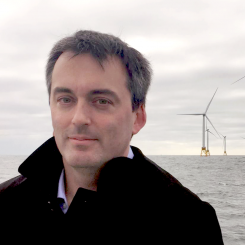April 28, 2021 - 11:00 AM - 12:30 PM Eastern Time (ET)
Decarbonizing
Heat in Buildings
Event Description:
Much of the world’s energy use involves generation or manipulation of heat in buildings, including space heating and cooling as well as household appliances. Economy-wide deep decarbonization is impossible without deep decarbonization of heat in buildings. Is this possible without significant breakthroughs in thermal science and engineering? Please join us for a webinar on challenges and opportunities related to decarbonizing heat in buildings. Dr. Mathilde Fajardy will present recent research conducted at the University of Cambridge (UK) on decarbonization prospects for residential and commercial heating and cooling. MIT Professor Christoph Reinhart will provide us with an overview of his recent work on building retrofit opportunities as well as his thoughts on U.S. Federal Government stimulus for buildings.





